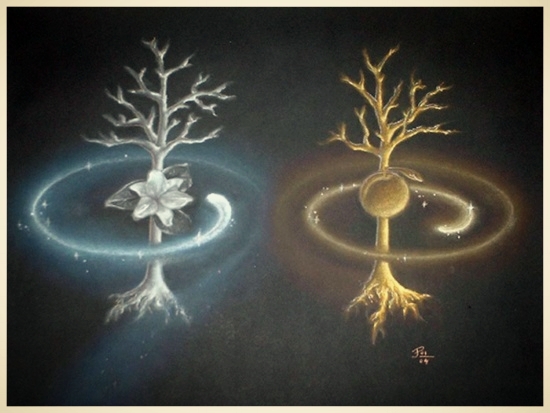Looking at the world around me, I witness a great deal of sadness, stress, and confusion regarding life in the modern age. As time continues its forward march, what remains of our utopian hopes seems to be fading, while our dystopian fears appear to be realizing a steady crescendo. Gone are the rallying cries of a "shining beacon on a hill", as day-to-day we find ourselves inundated by messages of fear and inevitable decline. As this process unfolds, we find ourselves beginning to question life on a grander scale, at times wondering what hope there is for us to find in a world spinning out of control. I maintain, as always, that there is hope to be found in reason, should we choose to embody it. In considering utopianism vs dystopianism, reason has something very simple to tell us, and given the state of the world around us, I find it to be an optimistic message.
In considering the concepts of utopianism and dystopianism, it is interesting to examine how the differing ideas are held within the collective mind of humanity. Should one Google these opposing concepts, they will find these definitions at the top of the list.
“Utopianism: the belief in or pursuit of a state in which everything is perfect, typically regarded as unrealistic or idealistic.
Dystopianism: describes an imaginary society that is as dehumanizing and as unpleasant as possible.”
Here we see that the two ideas exist at opposite ends of a social spectrum, with Utopia representing society perfected, and Dystopia its antithesis. However, we see something more reflected here, while the definition of utopianism includes the opinion that such notions are “unrealistic”, the definition of dystopianism does not. It seems standard practice to label Utopian viewpoints as idealistic or overly optimistic, yet we seldom read about how Dystopian beliefs are unrealistically pessimistic. Why is this the case? In examining these ideas, we see that they are bookends which serve to frame the entire spectrum of societal conduct, neither one more real or imagined than the other, so why is it that we tend towards a Dystopian bias?
In my last blog, I discussed Leonard Cohen’s song Anthem and how there seems to be a crack in every aspect of reality we experience, an exception to every rule - how the concept of static perfection seems to fundamentally violate the nature of this evolving reality, as it is always changing its shape, always striving to be something other than it is today. If this is truly the case, so too must there exist a crack in Utopia. It may be sad to consider, but any paradigm which promises perfection is a flawed paradigm, it is only reasonable to arrive at this conclusion. Yet, in holding notions of perfection to be false by definition, we are in turn compelled to release false notions of imperfection, accepting that nothing can be perfectly imperfect. In other words, when we dispense with Utopia as a valid state of existence, so too must we dispense with Dystopia. If we hold one end of the spectrum to be a false paradigm, we must apply the same attributes to the other end as well.
“Perhaps the greatest utopia would be if we could all realize that no utopia is possible; no place to run, no place to hide, just take care of business here and now. ”
In releasing ourselves from false notions of Utopia and Dystopia as achievable societal states, we free ourselves to find a deeper relationship with these concepts, holding them not as fantasized locations within reality that we may one day stumble into, but rather, as archetypal magnets that tug at our better nature. In doing so, we find ourselves free to once again take up the mantle of utopianism, seeing it not as a path to some mythological place in which we may one day reside, but as an intention via which we may approach life. In pursuing utopianism, we do not engage in fantasy, but rather, we hold to the hope that while tomorrow the world will not be perfect, it can be a little better than it is today.
In holding this altered perspective, we free ourselves to find perfection within the imperfect, to find peace in a purposeful process of upwards evolution, as opposed to futility in the pursuit of an unattainable destination. When we release our minds from static notions of life, we detach ourselves from the inner critic who would hold us to unreasonable standards. By taking this step, we choose to seek not perfection, but that which serves us better than what came before, revealing Utopia and Dystopia to be not destinations, but rather, directions via which we may set our course, within both our inner world, and the society in which we live.
Till next time!
Americana Singer Songwriter Ed Dupas’ lived-in melodies unwind with reflective lyrics that speak to the current state of the human condition. Soothing where possible, agitating where necessary, and calling for change where appropriate. Ed Dupas creates and shares well worn wide awake music.
For more information about music, shows, merchandise and Ed, visit:



